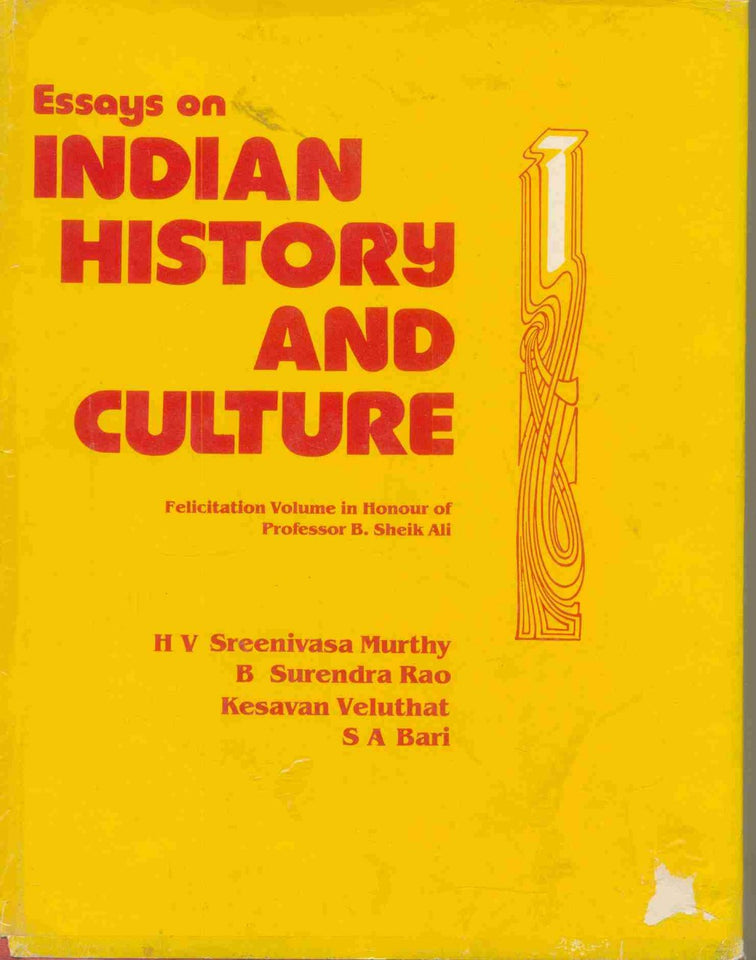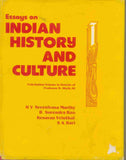Essays On Indian History And Culture : Felicitation Volume In Honour Of Professor B. Sheik Ali
Regular price
Rs. 250.00
A Festschrift to Professor B. Sheik Ali, currently Vice-Chancellor of Goa University, the present collection is not only a tribute to one of the leading historians of the country but also a lasting contribution to historical scholarship. Eminent historians such as Romila Thapar, Bipan Chandra, M.G.S. Narayanan, R. Champakalakshmi, K.N. Panikkar, Y. Subbarayalu, Aniruddha Ray, M.P. Sreekumaran Nair, Rajan Gurukkal and B.S. Shastry join in saluting Professor Sheik Ali who has been responsible for bringing about a new orientation in historical writing in South India. The scholarly contributions presented in this volume include a critical appraisal, making an integrated use of literature and archaeology in the light of modern social theories, of the early social formation of South India and its transitional processes made by Rajan Gurukkal and a detailed study of the peasants in early Tamilakam by M.G.S. Narayanan. In an early Tamilakam by M.G.S. Narayanan. In an analysis of the Vaishnava Pantheon and temporal power in South India, R. Champakalakshmi dwells upon the ideological aspects of divine sovereignty. Taking up the case of the Ksatriya Varna in Northern India, Romila Tapar demonstrates how descent was made use of for purposes of political legitimation. Two widely discussed problems in medieval South Indian History, namely the nadu and the nattar, are the subject matter of Kesavan Veluthat and Y. Subbarayalu. B.S. Shastry and Aniruddha Ray deal with two different aspects of the early commercial activities of the European powers in western and eastern India respectively. A.P. Ibrahim Kunju has brought out some documents on the Travancore War. Bipan Chandra articulates his position on colonialism, the various stages of colonialism and the expression of the colonial state. S.A. Bari reexamines the myth of the ?Muslim pillage? of the city of Vijayanagara. K.N. Panikkar brings out the bearing of agrarian legislation on social classes taking the experience in Malabar as a case in point. H.V. Sreenivasa Murthy assesses the work of M.V. Krishna Rao, the predecessor of Professor Sheik Ali, as a historian. In a slightly different tenor, K. Raghavendra Rao reflects on Gandhi?s concept of history more as he lived it than he wrote it. M.P. Sreekumaran Nair makes an analysis of the cultural relations between India and Indonesia in historical perspective. Besides these weighty contributions, this volume also offers a ready reference to the work of Professor Sheik Ali as a historian apart from a profile of Professor Ali by a very close student of his. The volume is indispensable for every serious student of Indian history and a major reference work of lasting value to researchers in social sciences.
Guaranteed Safe Checkout





